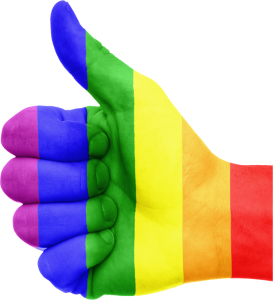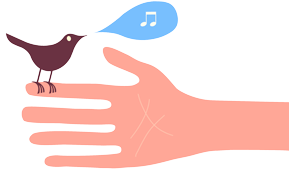Beyond the Minimum
 How can you tell if your therapist truly has expertise in working with LGBTQ1 clients beyond the minimum standards discussed in Part 1?
How can you tell if your therapist truly has expertise in working with LGBTQ1 clients beyond the minimum standards discussed in Part 1?
If you have a choice between therapists who meet the minimum standards, look for these additional qualifications. Good LGBTQ-friendly therapists are:
- Open about working with LGBTQ people. Their advertising, web site, and stated areas of expertise include mention of LGBTQ people. They have LGBTQ-related books, magazines and art in their offices. They genuinely like and enjoy working with LGBTQ people, and it shows.
- Careful about their use of pronouns. They don’t assume the gender of your partner(s) to be different from yours. They don’t assume that your gender matches their perception of your gender.
- Knowledgeable about resources for the LGBTQ community. They can help you find LGBTQ-friendly health care, psychiatry, political groups, religious communities, addiction treatment, and other services. They can help you figure out how to be more involved in the LGBTQ-community. They know good books for you to read and good websites for you to visit.
- Able to acknowledge the impact of homophobia, biphobia, transphobia and other kinds of bigotry. They believe you if you say you are facing discrimination. They know how people are affected by growing up in a bigoted society. They understand why you might choose to stay in the closet or to go “stealth” and don’t judge you for it.
- Interested in your sex life but not overly focused on it. They feel comfortable talking about sex with you and don’t seem disgusted, voyeuristic or titillated when you talk about it. They don’t judge your sexual practices.
- Understanding of clients’ desire to know their therapists’ sexual or gender identity. They get that some clients’ sense of safety depends on knowing that their therapist has personal experience with being LGBTQ. At the same time, they are able to talk with you about what it means for you to know that information.
- Sensitive to the fact that LGBTQ people are often oppressed in multiple ways, not just because they are LGBTQ. They know that LGBTQ people experience racism, ableism, sexism, classism, ageism, anti-Semitism, fatphobia, Islamophobia, etc. They understand how different kinds of oppression intersect.
In my mind, these qualifications, like those discussed in Part 1, seem minimal for a therapist to work with a LGBTQ client. Unfortunately, not everyone has the option to see someone who meets these qualifications. My hope is that if you do not have a therapist who has expertise in working with LGBTQ clients, this list will help you recognize that any resulting problems in therapy are not your fault.
See Part 3 for information about LGBTQ-friendly therapy for relationships and families.
- I recognize that LGBTQ is an imperfect way to refer to a diverse community of people. All too often, only some of those letters seem to count and the BTQ people get marginalized or neglected. In addition, there are lots of other letters and groups that could be added — intersex, asexual, polyamorous, questioning, etc. Despite the limitations of using an umbrella term, I am intending to be inclusive of all the letters here. [↩]
